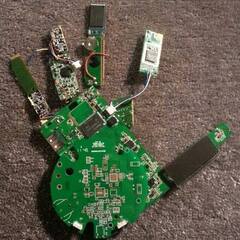Going back to intel 10 gen, what pci e,reduction of speed do you get ?
Go to solution
Solved by Eigenvektor,
43 minutes ago, gasolin said:rx 6950 xt what just a card use to illustrate a difference i think could happen if you use pci e 3.0 x8 instead of pci e 4.0 x16
The RX 6600 only has PCIe x8 and it doesn't really suffer on PCIe 3.0.
The RX 6500 XT only has PCIe x4. That one does suffer on PCIe 3.0.
https://www.techpowerup.com/review/amd-radeon-rx-6600-xt-pci-express-scaling/
https://www.techpowerup.com/review/amd-radeon-rx-6500-xt-pci-express-scaling/
~edit, for good measure here's the 4090
https://www.techpowerup.com/review/nvidia-geforce-rtx-4090-pci-express-scaling/

.png.255947720031a641abdac78e663b681c.png)



.thumb.jpeg.9babd505c85c11addf31a285a02547cc.jpeg)









Create an account or sign in to comment
You need to be a member in order to leave a comment
Create an account
Sign up for a new account in our community. It's easy!
Register a new accountSign in
Already have an account? Sign in here.
Sign In Now